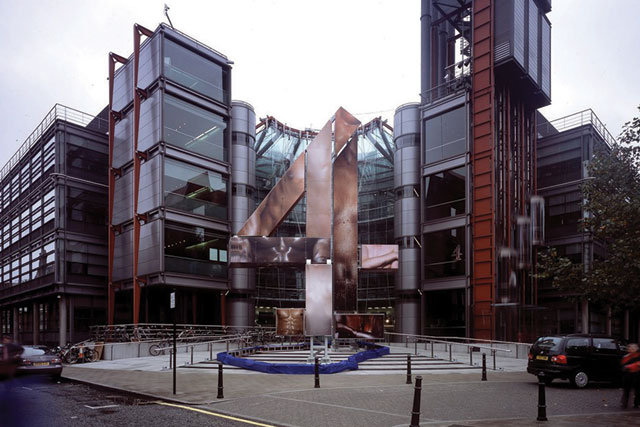
For donkey's years, people on both sides of the buying-selling divide have recognised, now and then, in somewhat more candid moments, that the way television airtime is traded in the UK is slightly less than perfect.
It's a market where a broadcaster's leverage depends on its share of commercial impacts - and its sales efforts are designed around the desire to reward agencies on the share of their total TV spend that they're willing to commit.
It's all terribly relative. It's a system where performance is judged on how much you've paid relative to your competitive set - not against specific marketing or sales goals. It's a trading environment where everyone essentially hedges their bets twice over.
If we had a blank sheet of paper, we certainly wouldn't be starting from here. But, of course, we don't have a blank sheet of paper. The trading system has evolved over three decades - and its evolution has been driven by the (understandable) desire to ensure that no broadcaster, media agency or advertiser is ever painted into a corner or made to look stupid.
And any scope for reform has been restricted by the Contracts Rights Renewal system, the market remedy put in place eight years ago to allow for the formation of the single-sales-point ITV we now know and love.
The system has even been scrutinised (however tangentially and inconsequentially) by regulators a couple of times before - and they have run away from any attempt to impose rationality on a bugger's muddle.
So it would take a brave person to announce unilaterally that they would like to rip it up and start again. Jonathan Allan, who joined Channel 4 as its new sales director in September, is clearly that man.
Last week, he called for reform. "I prefer to look at outcome and planning metrics as opposed to the input metrics of share of commercial impacts," he said.
Well, he would do, wouldn't he? Channel 4's share of total TV viewing has been slipping slightly. Not by much - from 7 per cent to 6.9 per cent. (Although the viewing share of the Channel 4 family of channels has actually increased, from 11.4 per cent last year to 11.7 per cent.) So its share of commercial impacts - the SOCI to which he refers - could arguably be a metric under pressure.
But is he right to call it outdated? No he isn't, according to Richard Oliver, the managing partner, investment at UM London, who is happy to set Allan straight. SOCI is still a relevant metric.
He explains: "Sales teams will pick and choose the yardsticks they wish to measure themselves by, and how much each promotes SOCI will obviously depend on how well their audiences have performed. The reality is that new metrics mean we just have more things to consider and more complex decisions to make. But most TV planners will look to changes in share of impacts as broad measures of a broadcaster's health."
However, direct marketing clients don't see the question in quite the same way as mainstream brand advertisers - as Mike Colling, the managing director of Mike Colling and Company, points out.
"SOCI deals epitomise all that is wrong about television planning and buying by the major agency groups," he states. "It's a lazy way for an agency to group together all of its spend to create value for the agency, rather than planning to the needs of individual clients."
He adds that the share of impacts measure is completely irrelevant for many clients: "The question that should be asked is: what reach and dwell time can be delivered against a specific audience, and what levels of engagement will result?"
That said, Adrian English, the head of broadcast at Carat, can't entirely agree with that view. "TV stations need to have a performance barometer," he insists. "SOCI is a blunt instrument, no doubt, but it is difficult to argue against it as a basis for deal negotiations - because it is not opinion-based, it is just (a measure of) the pure consumption of TV."
Absolutely, John Davidson, the head of trading at Starcom MediaVest Group, says. He concludes: "We wholeheartedly buy into TV's ROI credentials and are actively committed to trialling data-backed, outcome-based investments. But until we have scalable proof data and other insightful information, then we will still need to keep a close eye on SOCI, whether broadcasters like it or not. If they can help to show us the outcomes, we are more than likely to show them the money."
NO - RICHARD OLIVER, MANAGING PARTNER, INVESTMENT, UM LONDON
"Metrics like SOCI will always be objective. So while outcomes are important, a broadcaster's audience share will always be a consideration when planning TV."
YES - MIKE COLLING, MD, MIKE COLLING AND COMPANY
"We model the economic outcome of the investment we make for every client and every TV channel. We achieve growth for our clients by investing to maximum affordable budgets by channel, not limiting their use of channels by SOCI deals."
NO - ADRIAN ENGLISH, HEAD OF BROADCAST, CARAT
"Fewer viewers equals poor performance. Advertisers want to communicate with their consumers, and if the pool of consumers is dwindling on any channel, it becomes less valuable."
MAYBE - JOHN DAVIDSON, HEAD OF TRADING, SMG
"SOCI is not the one and only measure that agencies appraise when investing their clients' money. However, the fact remains that SOCI is currently the best, although admittedly blunt, representation of TV audience movement."
Got a view? E-mail us at campaign@haymarket.com.

